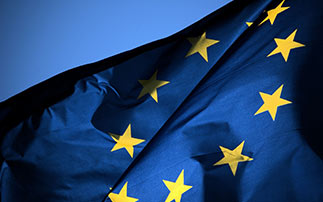In 1990, based on cohesion policy through the European Regional Development Fund (ERDF), the European Commission launched the INTERREG programme (or “European Territorial Cooperation” programme since 2007), with the aim of providing financial support for the development of cross-border cooperation in the Europe of Twelve.
INTERREG: What is it?
Originally, with a budget of 1 billion euro for the period 1990-1993, INTERREG aims to develop the potential of different border territories in order to reduce the economic and social inequalities between them. Since then, with successive enlargements, the programme has not changed its objective but its budget increased from 1 billion euro to 4 billion euro (1994-1999), then to 6 billion euro (2002-2006), to 8 billion euro (2007-2013) to over 9 billion euro for the period 2014-2020. Today, the funding programme is divided into 3 types of geographical cooperation:
- Cross-border cooperation (Interreg A), which aims to finance projects developed in regions with a common border (74.05% of resources in 2014-2020), such as Interreg France-Italy or Interreg Baltic South (24 regions in Germany, Lithuania, Poland, Denmark, Sweden).
- Transnational cooperation (Interreg B) which aims to finance projects in wider areas (20.36% of resources in 2014-2020), such as Interreg Northwest Europe (which concerns the British and Irish regions as well as some French, German, Belgian and Dutch regions)
- Interregional cooperation (Interreg C) which aims to finance cooperation projects between European regions established throughout the European Union (EU) (5.59% of resources in 2014-2020), such as Interreg Europe (all Member States, Switzerland and Norway) or the Urbact programme.
2014-2020: Many projects implemented for a limited budget
The current INTERREG programming period has been based on 11 investment priorities in order to contribute in a better way to the Europe 2020 strategy. Therefore, as far as cross-border and transnational cooperation is concerned, each INTERREG programme must respond to a maximum of 4 of these priorities, whether they are environmental (climate change, efficient use of resources, etc.), economic (competitiveness of SMEs, research and innovation, etc.) or social (employment and mobility, better education, etc.). Setting this framework of priorities for regional actors allows them to concentrate more effectively, both financially and politically, to respond to territorial issues without dispersing funds.
However, while the number of projects funded and the number cooperation under INTERREG increase in each programming period, the budgets allocated to territorial cooperation structures remain too restricted. Indeed, they remain much smaller in financial terms than the envelopes distributed to the regions through each of the European Structural and Investment Funds (ESFI). Of course, in addition to the ERDF, the EFSI also includes the European Agricultural Fund for Rural Development (EAFRD), the European Maritime Affairs and Fisheries Fund (EAMF), the European Social Fund (ESF) and the Cohesion Fund. The EFSI therefore cover very broad areas of intervention, which the INTERREG programmes do not include in their operational programmes. However, it would be interesting to broaden the priority investment themes of the INTERREG programmes in order to adapt funding even more closely to the realities of the territories.
2021-2027: Between widening the fields and stagnating budget
For the next 2021-2027 programming period, the INTERREG programme will be significantly modified. First of all, on the financial level, since the European Commission is planning to reduce the budget to €8.4 billion. Moreover, at the structural level, the programme will be adjusted with the emergence of three new components accompanying the three geographical forms: cooperation of the outermost regions, maritime cooperation and interregional investment in innovation. Despite this new and more precise structure, the modest budget therefore remains a major obstacle to the sustainable strengthening of cooperation.
Victor BONNOT




